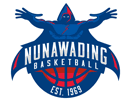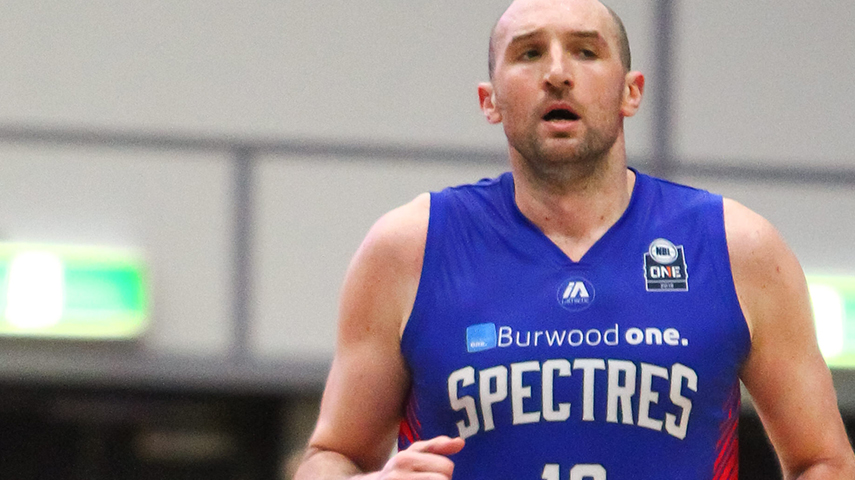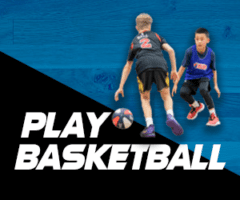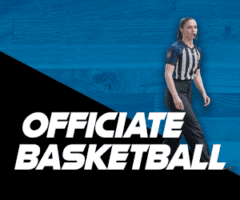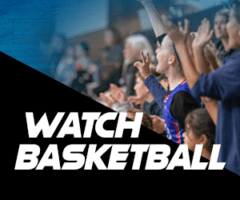Why did Simon Conn never play in the NBL?
When you look at his stats over the past eight years, it doesn’t make a lot of sense. Since 2012, Conn has averaged 19.6 points and 9.5 rebounds per game. It represents how consistently excellent he has been at SEABL and NBL1 level.
Numbers play a large part in scouting and recruiting. Unfortunately for Conn, it seemed his always got overlooked.
But why?
According to Dave Biwer, who has coached Conn at Nunawading throughout his career, the aesthetics of Conn’s game never appealed to NBL teams.
“I don’t know if you’ve heard anything called the eye test but when you watch a basketball player play, sometimes they don’t pass the eye test,” Biwer said.
“I’m assuming that the NBL coaches have just looked at Simon on tape and didn’t do enough research into his history, his shooting percentages, how he gets his baskets, his reliability.
“There was plenty of chat about his injuries, but I think in the last seven years he has only missed like two games with me.
“I really do feel like it must have came down to the eye test, it didn’t look as athletic as it was supposed to for the NBL guys and they didn’t give him a chance.”
If he did get that chance, Biwer believes Conn would have been up to the challenge.
“I’ve been around basketball at a level for 25-30 years and he would be up there in my top two or three shooters of all time,” Biwer said of Conn.
“He just does not miss from mid-range. Today’s game allows mid-range but as you hear the NBL commentators sometimes say, there are some players that you just can’t give the midrange to. Simon Conn is one of those, it’s just like a lay-up.
“For me, if he got a chance, he would have been better in the NBL than he is here because he wouldn’t have had so much attention.”
Conn tends to agree with Biwer’s thoughts that the look of his game didn’t fit the NBL billing.
When reflecting on his basketball journey, though, Conn doesn’t regret never playing at the top level.
“I got a couple of opportunities in the early days,” Conn said.
“One year I signed with the South Dragons and then I hurt my knee and needed to have knee surgery, so that kind of went away. Another year I got into a little bit of trouble off the court and that caused an issue there.
“Since then there’s been a few sniffs and a few interests here and there, but I think from the outside a coach can sometimes look at a style of game like mine and think it is a bit unorthodox and it is a bit awkward.
“Sometimes they can get a bit caught up in noticing the things that you don’t do instead of maybe going ok, let’s figure out a way to minimise those things that he can’t do because what he can bring to the table is all these other parts of the game.
“It’s so hard because NBL teams there’s usually only been about eight of them and only two-three bigs at each team. I think I got into a couple of positions where they decided to go with someone they knew as opposed to taking a chance on me.
“About six years ago I kind of just decided that it wasn’t for me. I loved playing basketball and I love the competitive nature of what we do but I often got a bit lost in the day to day grind of professional sport and I would sometimes lose my way a little bit and didn’t necessarily like it.
“I just need to do something else with my life and since I’ve made that decision, there’s been a few interests, a few more sniffs from clubs wanting a six week contract because players have gone down and I’m just not interested because I’ve got something else that I’m way more passionate about in my work life.
“As an overall package, I look back and think I’ve had a great career at a level that I’m really comfortable at and I’ve met some really good people and it jumpstarted the next phase of my life, which has given me more enjoyment as an overall than basketball ever could.”
In an era where player movement is prominent, Conn has bucked the trend.
Staying a Spectre since 2011, Conn has played a major role in building Nunawading into the powerhouse that it is today. Alongside coach Biwer and the recently retired Shane McDonald, the trio has embodied what it means to be a Spectre for the past decade.
A culture of winning, teamwork and a family atmosphere has seen Nunawading become a place where people stay. The likes of Tom Wright, Andrew Steel, Costas Hronopoulos and Dain Swetalla have followed Conn and McDonald’s lead and remained Spectres, the core playing a vital role in delivering the club the 2019 NBL1 championship.
“I really do feel like these two leaders in Shane and Simon created that staying power,” Biwer said.
“It doesn’t hurt that we were winning all the time. My first year was my first year with Simon as well, he came over to Nunawading at the same time I did, and the culture has really blossomed around those two.
“If they were the tree in the garden, there just seems to be all kinds of blossoming going on around them.”
Always humble in his approach, Conn was quick to pass the praise onto Biwer and McDonald when asked about how he has nurtured a culture of staying with Nunawading.
“We just have such a good culture built there,” Conn said.
“It started with Shane leading the way on the track, he was always so dedicated and so committed and played the right way and I’ve always loved playing basketball with him. We formed a pretty formidable one-two punch.
“The coaching of Dave was probably the key to me staying. He is an old school coach who doesn’t really focus too much on how you go at training, he is more about just doing whatever it takes to get a win.
“He has had that mindset from day one where winning and building a culture of winning is one of the most important things in a team.
“Between Shane and Dave, they just were the perfect fit for the kind of player I wanted to be and the kind of experience I wanted to get out of basketball. I just thought why you would leave something you’re enjoying so much.
“We have just been able to instil a real culture of getting guys in that fit within the mould of what we are trying to create. It’s not like we have really kind of focused in on it and really made it an emphasis from a spoken standpoint, it’s all from energy and effort on the court.
“Everyone that comes in just seems to want to play basketball the right way and it’s just a fun way to play.
“Playing hard and playing together and feeding off each other’s energy is a really fun way to play basketball and once people seem to come to this club, they seem to realise that, and they just want to stay and be a part of it.”
Conn’s attitude and approach to the game is unquestioned, but it takes more than that to post the numbers he has amassed throughout his career.
When asked what makes Conn the player that he is, Biwer put it down to the simple fact that reliability is the best ability.
“The thing we love the most about him is he is just so reliable,” Biwer said.
“He is reliable as a teammate, he is reliable with his midrange, he is reliable in terms of coachability if we have to switch stuff up.
“For somebody that has the accolades that he has gotten, he is so humble, and he is always just team first.”
Most of that reliability stems from Conn’s basketball intelligence.
“The beauty of him is his basketball IQ,” Biwer said.
“If a new guy was guarding him, when he would look down there and come out of the changeroom, I’m sure he wouldn’t be too scared about his athleticism or his quickness.
“It wouldn’t show itself until after the game when Simon had 24 and 14, just by knowing where to be. It doesn’t hurt that he shoots about 60 percent from 15 feet away.
“He just knows where to be at the right time and when a defender losses sight of him, Simon spots up and the guards find him.
“He has been a real godsend for us, so we have been lucky to have him, and we feel really fortunate that he has stayed around.”
Conn’s basketball IQ is undoubted, but how does one develop such a sharp mind for the sport?
“From an early age I kind of figured out how to score without having to use your athleticism,” Conn said.
“I figured out how to be a bit crafty and a bit sneaky and use my length, which were some of the assets I had in order to score and you figure out how to get to the open spot without having to move too fast.
“It was sort of a natural progression over my career.”
Another element that Conn has learnt throughout his journey is it isn’t all about what he knows – what his teammates know is just as important.
This has helped Conn grow as a leader, realising if his teammates aren’t on the same wavelength as him, then the best outcome isn’t possible.
“The leadership side of it has really developed as I have gotten older in my career,” Conn said.
“You have to get everyone on the same page and get everyone in the right mindset in order to have that team success.
“It’s one thing if I can put the ball in the bucket but if the other guys can’t get me the ball because they don’t see the game the same way, then we are never going to have as much success.
“One thing I have learnt over the journey is it’s really important to get everyone on the same page and then everyone flows, and the game flows a bit better and things start to open up naturally.
“I try to lead with a mindset and approach to the game. Last year we had Tom and Costas who are our captain and vice-captain and I didn’t really want to step into that role because those guys do such an amazing job of leading the team through the day to day grind and the vocal aspects off the court.
“What I try to do is when we are on the court, you just try to lead by example, and you try to keep everyone in a happy and positive mindset.
“That’s one of the real challenges in basketball is getting everyone on the same page and when stuff does start to fall apart, getting everyone to pull together and dig deep and fight back.
“Basketball is a game of highs and lows and runs, when things aren’t going your way you need to galvanise the group. I think that’s what I try to do in my leadership style.”
The partnership between Biwer and Conn extends beyond the basketball court, as the two have also grown a close friendship and work together at sports appeal company iAthletic.
Biwer says being able to see Conn through those different lenses – coach, business partner, friend – has helped him appreciate just how special Conn is as a person.
“I haven’t talked to a lot of people outside of the circle about this but Simon has an ability to let me be his coach when I’m his coach, he lets be a friend when we are friends and he also allows us to be business partners at the same time,” Biwer said.
“A lot of that is his adjustment more so than my adjustment. You would think that it was 50/50 but it’s just not.
“The fact that I coach, and he plays, makes him take on more of a listener role and it’s pretty impressive as a guy to be able to do that. I always toot his hoon that way.”
For Conn, he describes his relationship with Biwer as a special one.
“It’s more than a friendship or a partnership, we are family,” Conn said.
“We are able to put on all the different hats and work in multiple different capacities and at the end of the day we enjoy all of it and we manage not to take anything too seriously when you don’t have to and then we can both switch to that game mode whether it’s in basketball or in life.
“One thing I’ve learnt from Dave is you need to leave it all out on the court, leave it all out on the floor and I have tried to implement that in my life.
“We are family, so we can do anything.”
Conn and Biwer won’t get a chance to defend their 2019 title as the NBL1 season has been cancelled due to COVID-19.
However, when NBL1 returns for 2021 and Nunawading hits the court again, you know number 13 will be there ready to go as always.
After all, reliability is the best ability.
